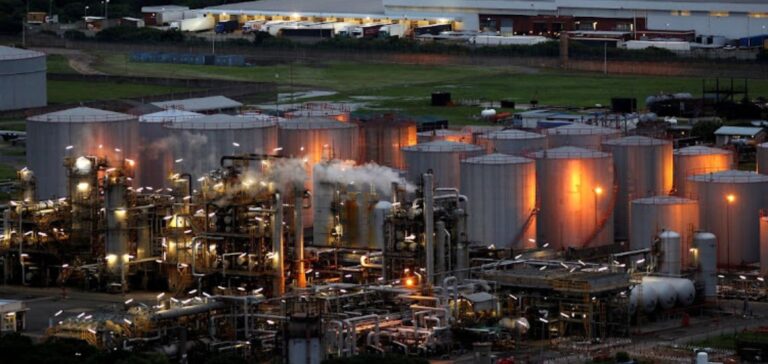The Sapref refinery in Durban, South Africa, is set to receive significant financial support from Shell Downstream Services International BV and BP plc.
The two oil giants, who are winding up operations at the site, have agreed to cover around $15 million in operational costs, a crucial contribution to the revitalization of this vital facility.
The move comes against a backdrop of declining refining capacity in the country, and is aimed at securing oil supplies.
Crucial financial aid for Sapref
Shell and BP have agreed to pay a total of R286 million (approximately $15.4 million) towards Sapref’s operating costs.
This payment includes 260 million rand in base costs, plus a provision of 26 million rand, representing 10% of the total, to cover any contingencies during the first year after the agreement is finalized.
The Central Energy Fund (CEF) is tasked with restarting operations at the refinery, which was damaged by flooding and has been idle since 2022.
The CEF is awaiting approval from the National Treasury for the acquisition of Sapref for the symbolic sum of one rand.
Restoration and future prospects
The Sapref refinery, with a nominal capacity of 180,000 barrels per day, represents a strategic element in South Africa’s energy security.
Financial support from Shell and BP could play a decisive role in getting the plant up and running again.
The CEF, headed by Ayanda Noah, is negotiating with the National Treasury to secure the necessary funding for the complete rehabilitation of the facility, which could cost up to $1 billion.
The refinery could also see an increase in production when it returns to service.
Reducing Operations and Impact
Shell and BP have scaled back their refining operations in recent years in response to increased competition from Asia and the Middle East, as well as efforts to reduce harmful emissions.
The closure of Sapref and its damaged condition have exacerbated refining capacity challenges in South Africa, making the rehabilitation of this refinery even more crucial.
Although Shell and BP have chosen not to comment on the details of the agreement, their financial commitment demonstrates the importance they attach to energy transition and supporting local economic recovery.
The next steps will include the finalization of the acquisition by CEF and the implementation of the rehabilitation plans.
Funding for operational costs and potential indemnities will mark the start of a new chapter for Sapref, with potential implications for South Africa’s energy security and the balance of the regional oil market.
Sector Analysis
Sapref’s situation illustrates the current dynamics of the oil market, where oil giants are reassessing their presence in strategic regions in the face of growing economic and environmental challenges.
The South African government’s intervention to revitalize a damaged refinery highlights South Africa’s efforts to maintain its refining capacity and secure its oil supplies in a rapidly changing global context.






















